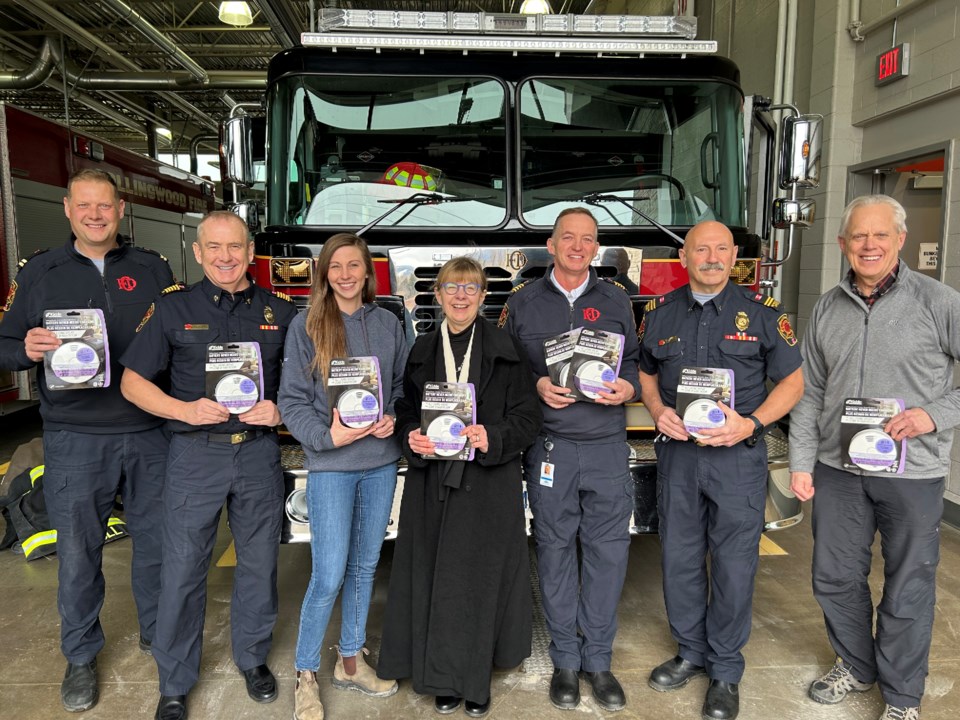Area natural gas distributor, Enbridge, is working with Collingwood Fire Department to prevent carbon monoxide (CO) injuries and deaths through advanced warning and home safety.
Enbridge Gas Inc. donated 240 smoke/CO alarms as part of the ongoing Safe Community Project Zero campaign, which aims to provide public education and alarms in the hopes of preventing fatal exposure to carbon monoxide, bringing CO deaths down to zero in Ontario.
Over the past 14 years, Enbridge has contributed 76,000 alarms and $250,000 to the campaign, which is a partnership with the Fire Marshal's Public Fire Safety council.
Statistics Canada reported 4,990 deaths from CO poisoning between 2000 and 2013 in Canada, including 1,125 deaths with no other underlying causes of death, and 3,865 with other underlying causes.
Collingwood Fire Chief Dan Thurman stated in a news release that the Project Zero partnership is a huge step forward in protecting lives and homes in Collingwood.
Deputy Chief Stephen Emo said the department has given out about 150 of the donated alarms already. Typically they are given out on calls where firefighters find vulnerable residents and/or residents who cannot afford a new alarm but need one in their home.
Caitlin Bettiol, an operations advisor for Enbridge whose territory includes Collingwood said the cost of the alarms can be prohibitive, but they are important to have in every home, and in multiple rooms and all levels of the home.
"Carbon monoxide is known as the 'silent killer' for a reason, and evidence shows that prevention saves lives," she said in a news release. "We know that the best way to avoid carbon monoxide exposure is to eliminate it at the source by properly maintaining fuel-burning equipment and that the alarms are a critical second line of defence to protect against carbon monoxide poisoning."
Carbon monoxide can be leaked into the air by any fuel burning appliance, including gas dryers, heaters, hot water heaters, cooking appliances and more.
If there is a CO leak in a home, residents can experience headaches, nausea, burning eyes, fainting, confusion, drowsiness, and often mistake the symptoms for a flu. The symptoms will improve when someone is outside of the home for a significant amount of time.
To prevent CO leaks in your home, the Ontario Association of Fire Chiefs recommends keeping all appliances regularly maintained and property ventilated. Fuel burning appliances should be inspected by a professional annually, and chimneys should be inspected and cleaned. CO alarms should be certified by the Canadian Standard Association (CSA) or the Underwriters Laboratories. Carbon monoxide alarms should be installed in or near sleeping areas of a home according to manufacturers instructions.
Do not use outdoor cooking equipment like barbecues or camp stoves indoors.
